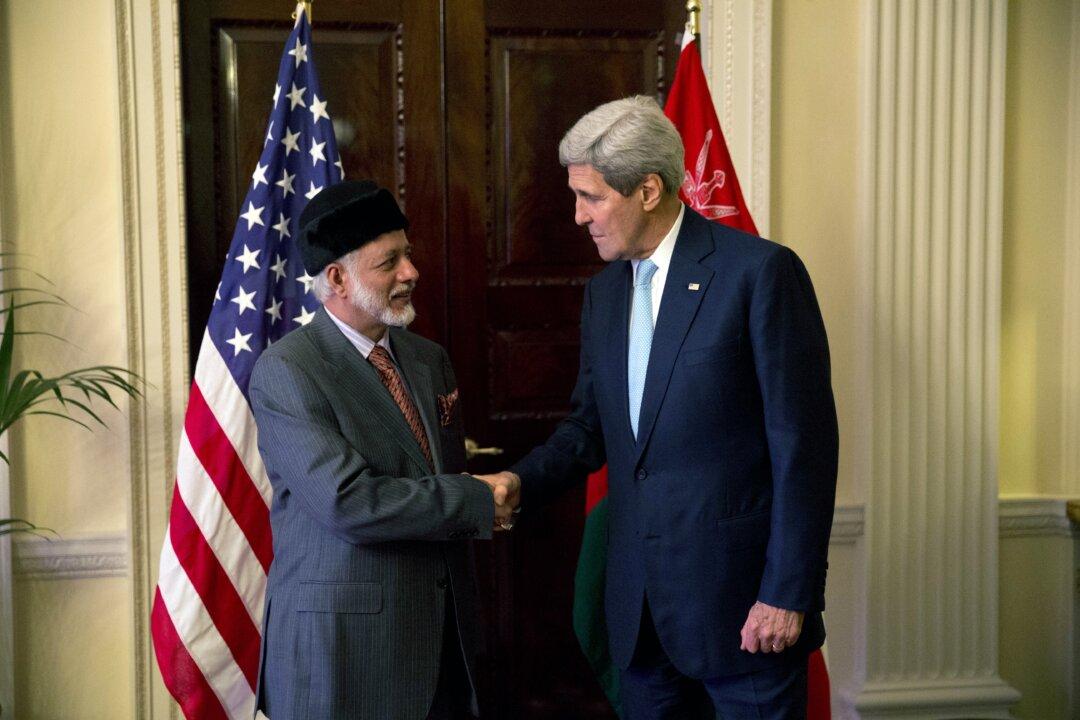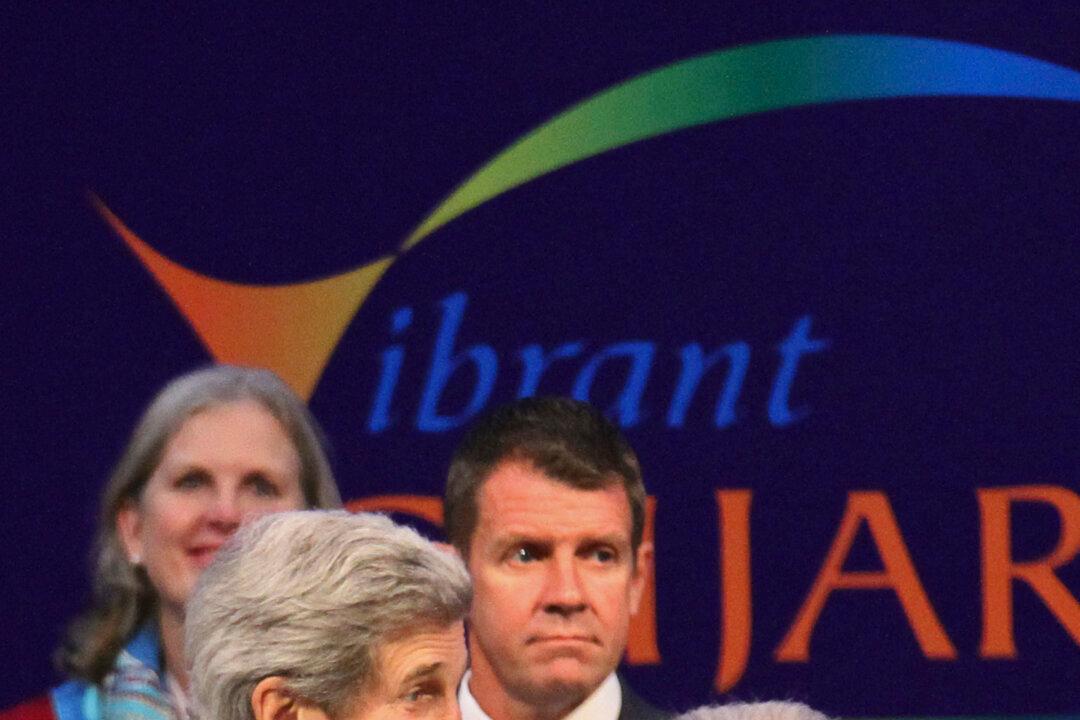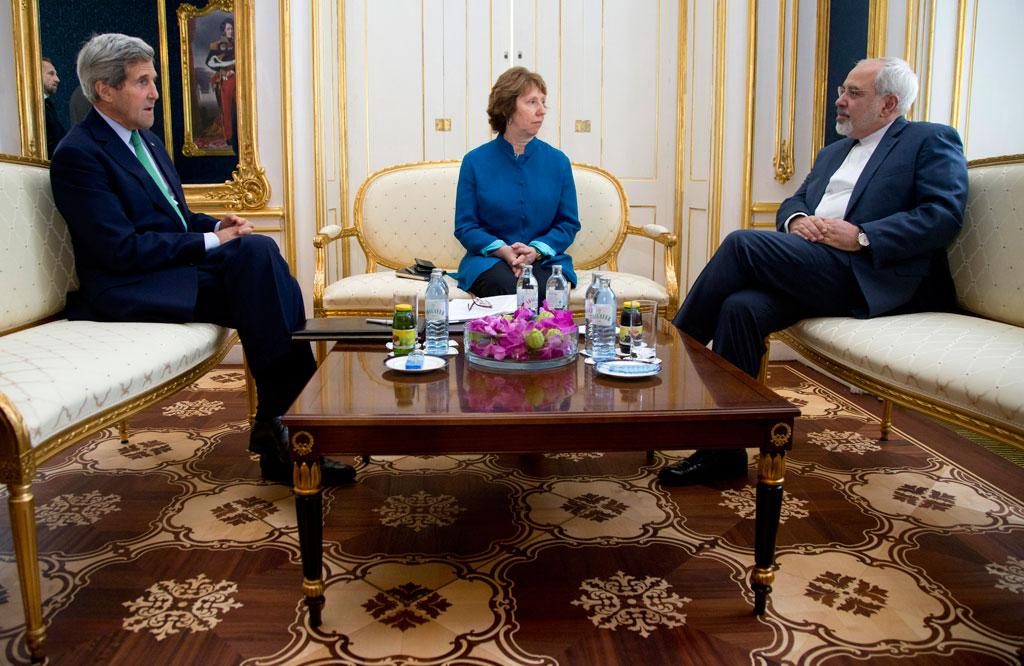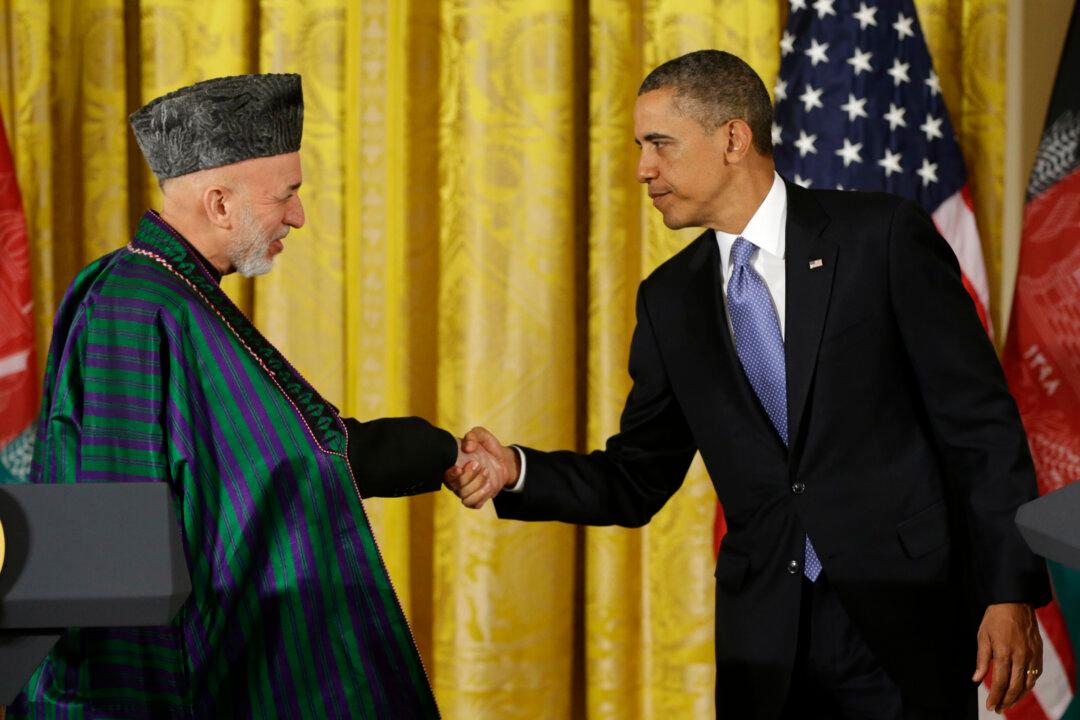LONDON—U.S. Secretary of State John Kerry held an unexpected second meeting in two days with a key Arab mediator in the Iran nuclear talks, part of a last-minute push to meet a Monday deadline for a deal that would ease the threat of the Islamic republic reaching the capability to produce atomic weapons.
Despite the diplomatic efforts, signs increasingly pointed to a further extension in negotiations.
Kerry met Wednesday at his hotel with Yusuf bin Alawi, the foreign minister of Oman, a key go-between in discussions between Washington and Tehran, a senior U.S. official said. Bin Alawi was in Tehran last weekend and met with Kerry Tuesday. Their follow-up meeting was unannounced, confirmed only after an Associated Press reporter saw the foreign minister in the hotel.
Oman, unique among the Gulf Arab states for the close ties it maintains with Iran, hosted high-level nuclear talks earlier this month and was the site of secret U.S.-Iranian gatherings dating back to 2012. Those discussions laid the groundwork for an interim nuclear agreement reached a year ago, which world powers and Iran are now trying to cement in Vienna with a comprehensive pact by Monday.
In Washington, Obama administration officials, congressional aides and independent experts who’ve closely monitored the discussions said an extension of the talks was most likely. In a twist, many opponents of the diplomacy now see a prolonging of the negotiations as more preferable than an accord.
Even though many lawmakers opposed an extension when the last one was announced in June, aides in both parties said an agreement now would be viewed as a sign of the administration’s desperation to secure a diplomatic breakthrough at any cost.
Republicans in particular want more time so that they can attempt to pass new sanctions legislation that would pressure Iran into greater concessions. The Senate’s plan is to bring up a package of conditional penalties after January, when Republicans take the majority, according to aides who weren’t authorized to speak publicly on the matter and demanded anonymity.
Some Democrats are on board with that effort, though Obama has threatened to veto any new sanctions threatening the diplomacy.
The midterm elections have others, too, weighing their approaches. The powerful pro-Israel lobby, AIPAC, issued a statement after the last extension urging the U.S. government to “make clear that Iran can expect no further extension of the talks.”
But it currently is taking no stance on whether another extension or a deal is preferable, given the parameters of the potential agreement are unknown. Also, a prolonging of talks could entail a new set of questions if accompanied by a framework for a future deal, an agreement of principles or some other understanding to guide the diplomacy going forward.
With Obama expected this week to issue an executive order on immigration, several aides pointed to the political unlikelihood of a nuclear deal coinciding with that effort. Both would demand the administration make a vigorous defense of policies with questionable public backing, fierce Republican opposition and mixed support even among Democrats.
Susan Rice, Obama’s national security adviser, last month put the chances of a deal at less than even.
David Albright, a former U.N. weapons inspector who advises the U.S. government on Iran’s nuclear program, said this week the interim deal would likely need to be extended again. Among the outstanding issues he outlined were the lack of progress in opening up Iran’s military sites, gaps on the number of uranium centrifuges it should be allowed to maintain and its continued failure to come clean on all military aspects of its nuclear program.
Iran insists the program is solely for peaceful energy production and medical research purposes. The U.S., its Arab and European partners, and Israel fear it may be a covert effort to develop a nuclear weapons arsenal.
From The Associated Press. AP National Security reporter Lara Jakes contributed to this report.




